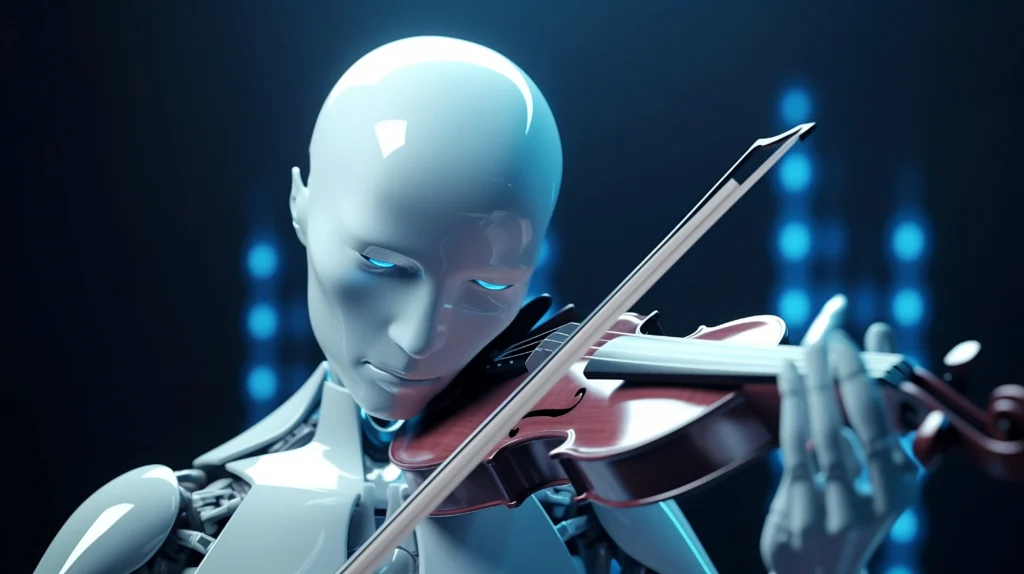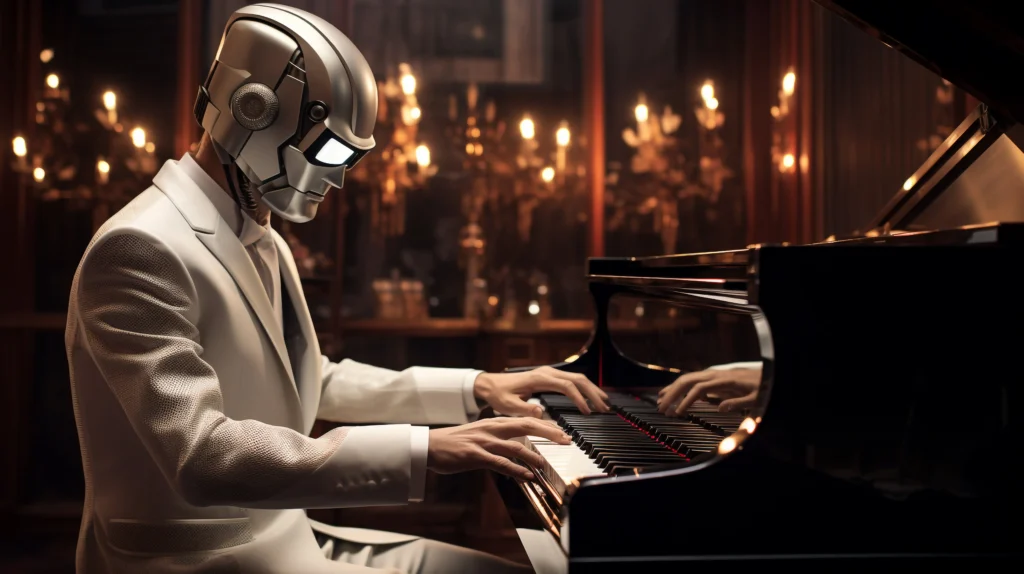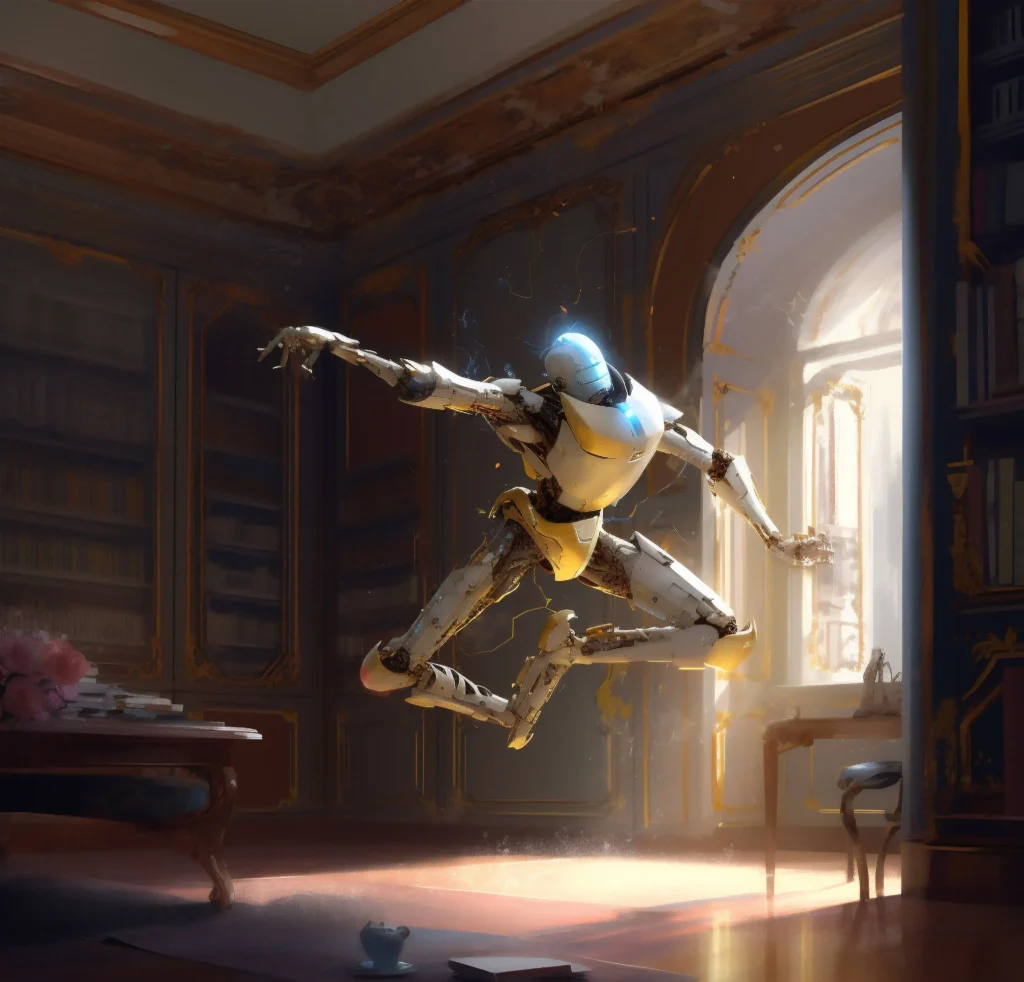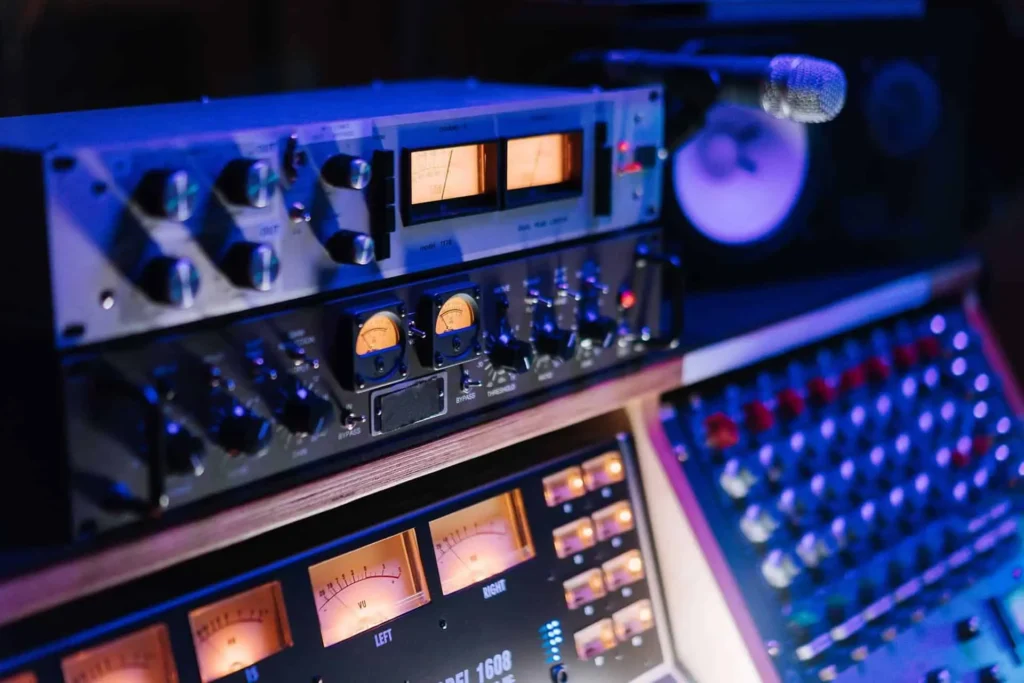Artificial intelligence (AI) is overturning the codes of our society.
And so is the music industry! This is a world where sounds and melodies evolve at the pace of technological advances, and which is undergoing a major transformation with Artificial Intelligence.
But how? What are the advantages and disadvantages of AI’s entry into the music industry? We’ll try to give you the answers…
AI: the muse of modern composers
Imagine this:
“Compose an epic cello melody accompanied by percussion”.
If you ask an AI to do that, it’ll do it without flinching!
OpenAI and Google MusicLM are two of the AI prodigies that can generate original compositions by analysing virtually all existing musical data. For artists, it’s like having an inexhaustible source of inspiration and creative possibilities at their fingertips.
Want a new Beatles album? No problem, AI can imitate the style of your favourite artists!
This is the case of “Daddy’s car”, a song created by the AI at Sony’s computer lab in Tokyo. It has been programmed to sound like a song written and recorded by the Beatles.
https://www.youtube.com/watch?v=LSHZ_b05W7o
Artist Alex Da Kid used Watson software to create his Grammy-nominated song “Not Easy”.
https://www.youtube.com/watch?v=U-e90ELRnnQ

And guess what? An AI has even completed Schubert’s Symphony No. 8 in 2019.
The ultimate purpose of artificial intelligence is to complement and stimulate new ideas from artists, in the musical style of your choice!
For beatmakers and singers, AI can facilitate the creative process. It is seen as a major ally in sound creation. It complements human creativity without replacing it.
AI as an aid to music production and mixing
AI doesn’t just shine on stage, it’s also a star behind the scenes. Software like OZONE makes mixing and mastering easier than ever! These AI tools analyse audio tracks, detect mixing problems and suggest adjustments. This improves sound quality while saving time and resources.
https://www.izotope.com/en/products/ozone.html
Producers can therefore concentrate on their creativity, leaving the AI to take care of all the technical aspects.
AI can optimise the music production process by identifying trends and helping artists choose the ideal time to release a song. Streaming platforms are already using AI algorithms. This enables them to analyse users’ listening behaviour and recommend songs based on their musical tastes. AI is thus becoming a veritable maestro of music marketing.

The pitfalls of AI: between fears and copyright
Will AI one day replace humans?
This is the subject of a huge debate within the music industry! And for the moment, it’s out of the question!
AI is struggling to understand and transcribe our emotions, especially when it comes to composing. It could be seen as a crutch for producers and artists, but it is still a long way from replacing them.
However, with advances in AI, some specialists are wondering whether it could one day rival our musical moods. For the moment it remains essentially technical and not yet totally creative, but it promises to save a hell of a lot of time.
And while AI remains a support for artists, this is not the case for producers and labels, who could see their role as intermediary between artists and the public considerably reduced. AI allows artists to stand on their own two feet, to create and share their music without an intermediary!
It can even dethrone the role of the producer by offering tailor-made songs for listeners. Since 2020, Snafu Records has been using A&R AI to identify emerging artists with the greatest potential. According to the label, using AI would enable it to save time and cut costs, all while discovering original and diverse artists.
Have you heard this song?
https://www.youtube.com/watch?v=SWvSqf9AY8YIt’s a song that very quickly went viral on platforms and features singers Drake and The Weeknd. But what the public didn’t know was that the song was written and produced using only Artificial Intelligence. Ghostwriter used an AI to transform his own voice and take on those of the two Canadian stars without their having recorded anything!
So artists can have their voices “stolen” for music creation.
With the rise of AI, copyright is becoming a real headache. Who owns the rights to music created by artificial intelligence? Can music created by AI be considered as royalty-free? How should rights and revenues be distributed between the various players involved in AI-based music creation?
For the moment, there are no clear answers to these questions, as French law does not consider AI to be a legal entity, still requiring human intervention in the creative process. However, some legal experts have attempted to provide solutions. One example is the AI AIVA, which composes original classical music for video games and even advertising. This software was recognised as a composer by SACEM in 2016.

Artificial intelligence is shaking up the music industry, even if it is still much more technical than creative. A revolution that offers many advantages to artists, beatmakers, producers and listeners, but also raises ethical and legal questions. In the face of the rise of AI, it is essential that the music industry continues to adapt, support and collaborate with AI in a responsible manner to exploit its full potential while respecting the rights of creators. In the years to come, get ready for a symphony of increasingly surprising and different musical innovations!
At Brandy Sound,sound identity agency, in addition to their ears, our composers use AI-based software suites on a daily basis. This software analyses their creations, scans audio frequencies and suggests corrections throughout the creative process: composition – production – mixing and mastering.
So it’s not unusual for AI to guide us and suggest that we use a sound that will blend better with the other instruments used in a piece.
We see AI as a valuable assistant that suggests choices without imposing them.
